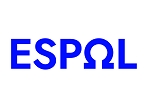Présentation
None
This course draws on the concept of “food politics” – the political, social, cultural and economic conflicts surrounding food – to debate some of the common public controversies surrounding the production and consumption of food around the world.
The course is organized around a limited number of thematic corpora, out of which students will concentrate and work in depth. Topics include ‘hot issues’ in food politics, such as genetically modified organism; nutrition, diets and public health; food and the environment; food movements and food advocacy; lobbying. This course will also provide methods for exploring controversies.
This course includes a field trip to the Salon International de l’Agriculture in Paris, where a series of conferences and events on food and agriculture are organized.
Learning objectives
- Reading and critical thinking: how to identify the key arguments and evidence used in a piece of writing and critically appraise these.
- Argumentation and speaking skills: the construction of an analytical, accurate and well- presented oral argument, based on the latest scientific evidence in both natural and social sciences.
- Academic research, including the search for, assimilation and synthesis of the latest academic evidence in food and agriculture.
Modalités
3h intro session + 5x 3h debates/lectures + 2h conclusion + fieldtrip.
Each class will cover a specific case that shows a variety of viewpoints and actors on a disputed question in food politics. Each case includes a series of documents (that I collect before each workshop) from actors directly engaged in the controversy and from scholars and journalists.
Students will be asked to be active during the course. The class will be divided into 3 groups of students. Each group will have to summarize, comment and criticize documents they will have to read.
Students will also constitute a short memo (3 pages of presentation) and a dossier (8-15 pages of materials collected online) presenting one controversy and documenting it with articles from scientists, experts and non-experts involved in it. To do that, students will team up in groups of 3 and learn during the course how to search and collect documents pertaining to a controversy. They will learn how to detect the expert knowledge at stake, measure the activity of a controversy, identify the different actors and describe arenas of debate.
We expect 3 sections in each file:
- a presentation of the controversy (with a list of actors and arguments found in the documents and the main issue(s) in contention) in 2 pages.
- a presentation of the search strategy methods (which databases, which queries, numbers of results) in 1 page and a list of the documents students are enclosing in their dossier.
- the documents listed in the way students find most conducive to understanding the case. We recommend that they include at least 6 different documents.
Evaluation
The assessment for this course will be based on:
- In-class debates and participation (50%)
- Memo/dossier (50%)






